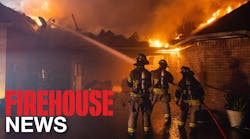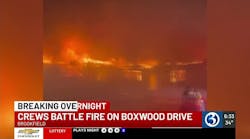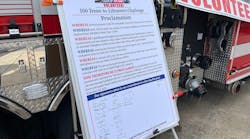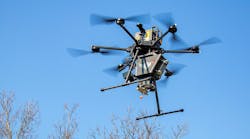Every fire department does something. We don’t all respond to lots of fires, we don’t all respond to lots of EMS situations, and we don’t all respond to lots of technical rescue events. But we all respond to something.
Many fire departments are relatively quiet, but the frequency of alarms has little to do with the quality of the service you provide. What we all need to do is use the events that we do respond to as a learning tool to improve our performance in future events.
Step by step
Whether you call it an after-action review or report (AAR) or a post-incident analysis (PIA), the key is that you begin the process of reviewing your incidents and learning lessons. There are many ways to put this event together, and it may hinge on the size of your department, the number of units or companies that operated at the incident, and the location of the event.
First, assemble the units and personnel who operated at the incident as soon as possible. If too much time passes before the review, the personnel who responded will be less likely to accurately recall their actions. Once you get the group together, a simple and transparent review should follow.
These reviews are not aimed at identifying violations or instituting discipline, but rather raising issues about the incident where positive results can be reinforced and less-than-desired results can be identified and corrected. The process is fragile and members of all ranks will be sensitive to being judged by their peers and superiors. It must be made clear up front that the entire event is being conducted only to improve the future operations of the department.
After an overview of the incident, each attendee is given an opportunity to discuss issues that went well, issues that need improvement, and specific or general recommendations. This can be handled in a variety of ways; that is left to the facilitator or review organizer. Again, the important piece to remember here is that we are simply collecting information in an attempt to identify both positive and negative issues that can be used to improve tactics or strategies for future operations.
5 whys
One tool that officers can use to facilitate the discussion is the “5 Whys” technique, which is used to look deeper and deeper into an event or action by simply asking the question “Why?” Asking five times is not a requirement but rather a rule of thumb. Let’s look at an example of this process that took four questions:
During a discussion about a structural fire that escalated to a multiple alarm and resulted in a heavily damaged building, it was determined that the first engine was seriously slowed in the advancement of the primary attack line. The officer of that unit made that admission and several questions followed:
Q: “Why was the hoseline advance so slow?”
A: “There was a heavy smoke and heat condition that was not subsiding as we advanced.”
The truck officer was then asked:
Q: “Why was ventilation delayed at this fire?”
A: “We arrived at the scene and were instructed to remain at the staging area.”
Q: “Why was your company held so long as the staging area?”
A: “We were waiting for about 10 minutes for the staging area chief to arrive and deploy us.”
The battalion chief was then asked:
Q: “Why did it take so long for the staging area chief to arrive at the staging area?”
A: “The staging area chief’s radio was on the tactical channel rather than the command channel, and he did not receive the assignment to report to staging when it was originally transmitted.”
As you can see, by continuously asking the question “why?” it can be safely stated that the engine’s slow advance may very well have been the result of a chief’s radio being on the wrong channel. This tactic, along with many other AAR techniques, can play a major role in discovering, discussing and improving your departments future operations. Ask away!






